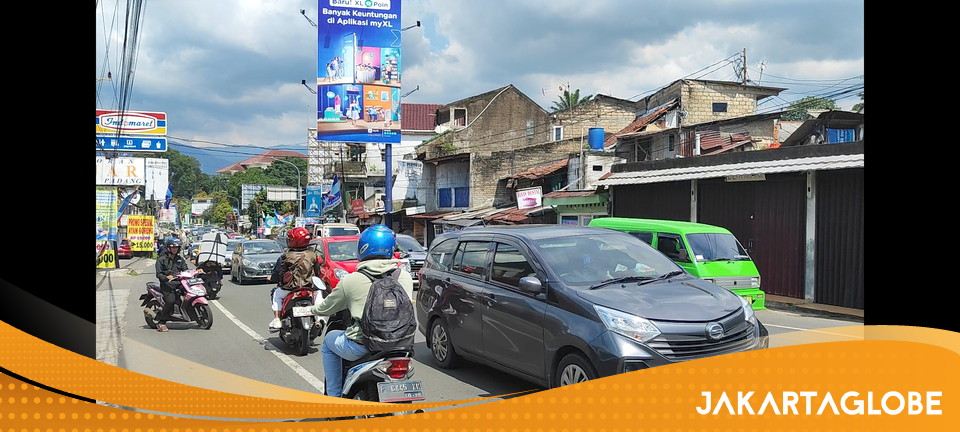Too Many Holidays Spell Bad News for Indonesia's Productivity - Jakartaglobe.id

Jakarta. While people usually look forward to taking a break from work, “too many holidays” can spell bad news for Indonesia’s productivity.
Throughout 2024, Indonesia has had 17 national holidays. The government has added 10 collective leave days -- additional days off that usually take place after religious holidays. This means that Indonesians enjoy almost a month of public holidays cumulatively. There are also 104 weekend days in 2024, meaning that the effective working days in Indonesia are only 64 percent of the calendar year.
According to Manpower Minister Ida Fauziyah, employers must allow their workers to have public holidays as they are mainly related to religious rituals. The extra collective leave days are, on the other hand, optional. In other words, companies have a choice to instruct their employees to work during these days.
The minister said the long holidays could boost Indonesia’s economy, particularly the tourism sector. However, data shows that “too many holidays” have taken a toll on Indonesian per-worker labor productivity. They are also detrimental to many sectors.
Advertisement
According to the 2023 Asian Productivity Organization Databook, the average worker in Indonesia contributes $26,300 to the country’s gross domestic product (GDP). This is lower than the per-worker labor productivity in ASEAN, which amounts to $27,800. Indonesia is even falling behind fellow ASEAN members in terms of workers’ productivity. The average Singaporean worker contributes $175,900. The per-worker labor productivity in Malaysia reaches $60,900, while Thailand’s stands at $33,000. For comparison, Singapore has 11 public holidays throughout 2024, while Malaysians have 21 public holidays. Thailand has 16 public holidays this year.
The automotive industry also struggles during these times Day offs lead to a decline in production and deliveries to dealers. In April 2024, the Association of Indonesian Automotive Industries (Gaikindo) data shows that Indonesia’s wholesale car sales dropped 35 percent month-to-month from 74,274 units to 48,637 units in April 2024. The government has set a 10-day-long holiday last month. Car sales went down 17 percent year-on-year (yoy). The Indonesian Motorbike Industry Association (AISI) data shows motorbike sales also went down 28 percent m-o-m to 419,136 units.
According to Hariyadi Sukamdani, a representative of the Indonesian Chamber of Commerce and Industry (Kadin), the long holidays significantly hamper the productivity of many sectors, be it banking, manufacturing, logistics, and consulting services. Public services will likely slow down as civil servants go on vacation.
Holidays do not have that much of an impact on the tourism sector. Indonesia’s purchasing power is currently weak, especially if the holidays take place in the middle of the month and workers receive no compensation. For context, most Indonesian employees get paid at the end of the month.
“We receive religious day allowances during Eid. Civil servants and government employees have bonuses, and this is great for the circulation of money. But peope have little to no purchasing power if the holidays occur in the mddle of the month. Workers have not received their salary yet,” Hariyadi said.
Anggawira, the secretary-general at the Indonesian Young Entrepreneurs Association (Hipmi), called for an in-depth assessment to put an end to the “too many holiday” debate. It would be best for the government to group similar industries into one cluster, and have them come up with their own way to approach the holiday policy to prevent the holidays from affecting productivity. A hybrid working system can also be an option for some employers. Anggawira said: “Or perhaps some industries can get incentives in these long breaks.”
Ex-Tourism Deputy Minister Sapta Nirwandar said that “too many holidays” could be detrimental to the workers.
“In countries like Indonesia and Vietnam, people prefer having fewer holidays and more working days. Because they want to make money. … Vacations require money. How do you make money if there are too many holidays?” Sapta said, while adding that it is only the rich who goes on vacation.
Many Indonesians also favor traveling overseas as plane tickets to travel abroad --e.g. Singapore-- is oftentimes cheaper than going to domestic destinations such as Labuan Bajo, according to Sapta.
According to senior economist Tauhid Ahmad, labor productivity becomes one of the factors that an investor considers before investing in a country. However, the holiday-induced low productivity can make Indonesia less attractive to potential investors. Tauhid said: “Investors may not say this explicitly, but of course having ‘too many holidays’ does have an impact. Especially if the wage is not in proportion with the productivity.”
Lawmaker Rahmad Handoyo said that the government needed to discuss with the employers’ association and employees to find a solution that benefits everyone. Handoyo said that the holiday policy had its positive and negative impacts that may differ across industries. While the holidays may be a boon for the tourism sector, they can be a bane to the manufacturing industry.
“We all need to sit together and discuss this. … Don’t just come to the conclusion that it is bringing down our productivity. We need to have these discussions so we can boost the tourism sector, while also paying attention to other sectors,” Handoyo said.
__
B-Universe reporters Alfida Rizky Febrianna, Hendro Dahlan Situmorang, Teguh Adi Prasetyo, Yustinus Patris Paat, Zhulfakar also contributed to this story.
Tags: Keywords:from "holiday" - Google News https://ift.tt/Gdr6wKB
via IFTTT
Comments
Post a Comment